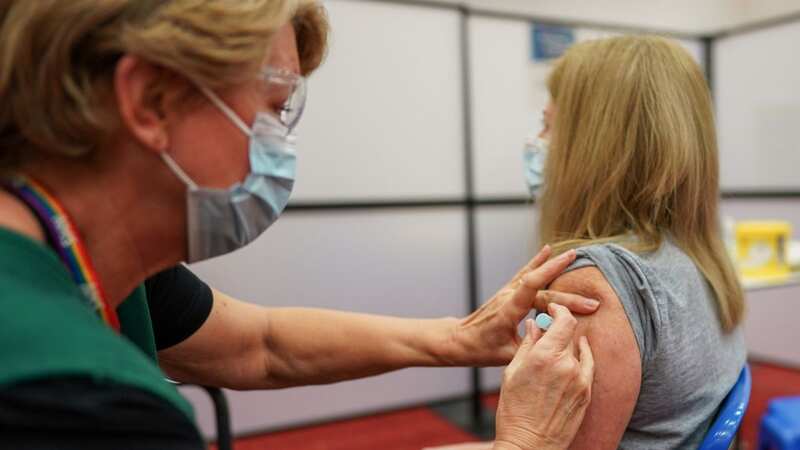Universal Covid vaccine 'would save millions of lives and cost less'

A universal coronavirus vaccine could save millions of lives and billions of pounds if developed before the next pandemic, a study suggests.
Top scientists believe that one jab, would not give total protection, but would lessen the impact as a more specific vaccine is found. Researchers simulated what the effects of a universal coronavirus vaccine would have been before the recent COVID-19 pandemic, and concluded that billions would have been saved for the economy along with millions of lives.
With another pandemic assumed to be a different coronavirus, scientists can see what all coronaviruses have in common and develop a vaccine to knock these elements out. In anticipation of the next pandemic - which epidemiologists say could land within the next decade - the research team concluded that investing in developing and stockpiling a universal coronavirus vaccine could be significantly beneficial.
The study team, comprised of experts from the Public Health Informatics, Computational and Operations Research (PHICOR) group, the CUNY Graduate School of Public Health and Health Policy (CUNY SPH) and the National School of Tropical Medicine at Baylor College of Medicine (BCM), set out to answer what the effects would have likely been if scientists had developed a universal coronavirus vaccine in the years prior to 2020.
A universal vaccine would target parts of the virus shared by many, if not all coronaviruses - thereby offering protection against a vast range of strains. This kind of vaccine could, in theory, have provided a cost-effective stop-gap in the COVID-19 pandemic until the strain-specific (SARS-CoV-2) vaccine went through its development, testing, and emergency use authorisation process which lasted around 10 months.
 Long Covid symptoms - 23 most reported signs from palpitations to vertigo
Long Covid symptoms - 23 most reported signs from palpitations to vertigo
 One jab could save money as well as people (Getty Images)
One jab could save money as well as people (Getty Images)The research team ran a series of simulations to demonstrate that having such a universal vaccine at the start of the pandemic would have had substantial health and economic benefits under almost all scenarios tested. The researchers developed a computational model that simulated the entire US population and the introduction and spread of a novel coronavirus like SARS-CoV-2 in 2020, calculating the resulting infections, hospitalisations and economic outcomes.
However, the simulations tested what would have happened if a universal coronavirus vaccine was available at the start of the pandemic. The simulations showed that vaccinating with a universal coronavirus vaccine as a standalone intervention - with no social distancing, face masks or any other measure introduced alongside - was cost-saving even when its effectiveness was as low as 10 per cent and only 10 per cent of the US population received the vaccine.
Where a universal vaccine has 10 per cent efficacy, vaccinating a quarter of the US population within two months of the start of the pandemic was shown to avert an average of 14.6 million infections and save more than $27 billion (£21 billion) in direct medical costs.
Such low vaccine coverage at the beginning of the pandemic could occur if a vaccine were only made available to high-risk subpopulations - such as over 65s, vulnerable groups with weakened immune systems and frontline workers - similar to the approach when vaccines were first introduced during the COVID-19 pandemic in December 2020.
American scientist Dr Peter Hotez, the dean of Baylor’s National School of Tropical Medicine and co-director of the Texas Children’s Hospital Center for Vaccine Development, said the team's study - published in the journal eClinicalMedicine - demonstrated that a universal vaccine should be prioritised before the next pandemic.
"Covid-19 was the third major and serious coronavirus epidemic or pandemic following SARS in 2002 and MERS in 2012," Dr Hotez said. "Thus, we should anticipate a fourth coronavirus outbreak within the next decade or so. A universal vaccine is cost-effective and cost-saving and a priority for advancement."
A universal coronavirus vaccine was also shown to be highly cost-effective even if a more specific and more effective vaccine came to the market soon after its introduction. The study showed that if it takes four months or longer for a strain-specific vaccine to reach the market, using a universal vaccine would still save lives and costs.
Given the time taken to develop a strain-specific vaccine during a pandemic to match circulating strains of the virus, these results again highlight the importance of having a universal vaccine readily available as a stopgap. Dr Bruce Lee, an executive director of PHICOR and professor at CUNY SPH, described such a universal vaccine as a potential 'game-changer'.
"Our study shows the importance of giving as many people as possible in a population at least some degree of immune protection as soon as possible," Dr Lee said. "Having a universal vaccine developed, stockpiled, and ready to go in the event of a pandemic could be a game-changer even if a more specific vaccine could be developed three to four months later."
Read more similar news:
Comments:
comments powered by Disqus

































